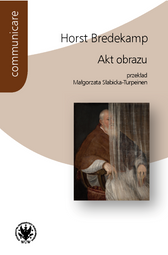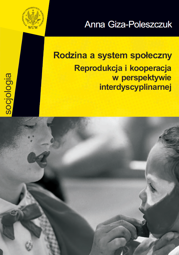Information about a product
| Edition: | 1 |
| Place and year of publication: | Warszawa 2025 |
| Publication language: | polski |
| Title of original: | Das Projekt Lanzarote ‒ eine verwirklichte Utopie? César Manriques Programm der ästhetisch-sozialen Verwandlung einer Insel |
| Translator: | Małgorzata Kloc-Konkołowicz |
| ISBN/ISSN: | 978-83-235-6631-1 |
| EAN: | 9788323566311 |
| Number of page: | 128 |
| Binding: | Twarda |
| Format: | 14,8x21 cm |
| Method of publication: | Druk |
| Weight: | 300 g |
| Publication type: | Praca naukowa |
| DOI: | https://doi.org/10.31338/uw.9788323567554 |
Manrique and His Lanzarote Project. Utopia Actualized? An Artist's Programme for the Aesthetic-Social Transformation of an Island
The book is an expression of the author’s fascination with César Manrique’s social and artistic concept, who – with the help of art – wanted to highlight the natural beauty of the volcanic island Lanzarote and make it a dream place to live in for its inhabitants. A place that is attractive for the outside visitors, but also free of mass tourism and recurring products of the industry.
The author describes the phenomenon of Lanzarote from the perspective of social philosophy, analysing the role of the artist in shaping the world surrounding him. He refers to the idea of beauty of nature as a source of not only artistic creation, but also human happiness. He describes how people are rooted in tradition, culture, and local area, which are essential for building social identity. The open ending of the book encourages readers to reflect on their own if César Manrique’s utopian idea to make Lanzarote a place of unity of life, art, and humanity is a success or if it still remains an unfulfilled dream.
Keywords: Lanzarote island, César Manrique, utopia, myth of Atlantis, labyrinth metaphor, landscape architecture, sustainable tourism.
The book is an expression of the author’s fascination with César Manrique’s social and artistic concept, who – with the help of art – wanted to highlight the natural beauty of the volcanic island Lanzarote and make it a dream place to live in for its inhabitants. A place that is attractive for the outside visitors, but also free of mass tourism and recurring products of the industry.
The author describes the phenomenon of Lanzarote from the perspective of social philosophy, analysing the role of the artist in shaping the world surrounding him. He refers to the idea of beauty of nature as a source of not only artistic creation, but also human happiness. He describes how people are rooted in tradition, culture, and local area, which are essential for building social identity. The open ending of the book encourages readers to reflect on their own if César Manrique’s utopian idea to make Lanzarote a place of unity of life, art, and humanity is a success or if it still remains an unfulfilled dream.
Keywords: Lanzarote island, César Manrique, utopia, myth of Atlantis, labyrinth metaphor, landscape architecture, sustainable tourism.
Zobacz również
Polecane



Akt obrazu67,00 zł
60,30 zł
Details
- The first Polish translation of the "Image Acts", written by Horst Bredekamp, professor at the Humboldt University of Berlin, an art historian specialising in the theory of the image, political iconology and scientific imagery. In the publication

Przekład PJM dla początkujących w teorii i praktyce46,00 zł
41,40 zł
Details
- The multi-author monograph dedicated to the issues of interpreting Polish Sign Language (PJM) contains thirteen articles addressing the subjects which have not been raised before in the debate on the interpreting of the PJM. It discusses the challenges

Spotkania czasu z miejscem. Studia o pamięci i miastach29,00 zł
26,10 zł
Details
- The book discusses the problems of collective remembering in contact with urban space, expressed through media based on words and images. Visual and textual potential of "time and place meeting" is traced in theoretical dissertations, fiction literature








